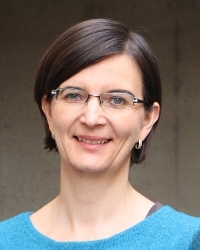Monika Baar new Professor of Central European Studies
The Foundation for Austrian Studies and the Institute for History are very glad to announce that Monika Baár has been appointed as the holder of the Special Chair for Central European Studies.
In 1990 the Foundation for Austrian Studies founded a Special Chair for Central European Studies at Leiden University. Nicolette Mout held the special chair from 1990 to 2010. As from June 2017 the Foundation for Austrian Studies and Leiden University appointed Monika Baár as the holder of the special chair.
Monika Baar has been working at the Institute for History of Leiden University since September 2015. Before joining the Institute she was Rosalind Franklin Fellow at the University of Groningen (2009-2015). The Institute congratulates Monika Baar with her appointment!
Introduction
 I completed my undergraduate studies in History, Literature and Linguistics at Eötvös Loránd University (ELTE) in Budapest and received MA degrees in History from the Central European University, Budapest and from the School of Slavonic and East European Studies, London. During my undergraduate years I held scholarships at Vilnius University and Vienna University. I was awarded my doctorate (DPhil) in Modern History by the University of Oxford in 2002 and subsequently held a two-year Postdoctoral Fellowship at the Max Planck Institute for the History of Science in Berlin and a two-year Teaching Fellowship at the University of Essex.
I completed my undergraduate studies in History, Literature and Linguistics at Eötvös Loránd University (ELTE) in Budapest and received MA degrees in History from the Central European University, Budapest and from the School of Slavonic and East European Studies, London. During my undergraduate years I held scholarships at Vilnius University and Vienna University. I was awarded my doctorate (DPhil) in Modern History by the University of Oxford in 2002 and subsequently held a two-year Postdoctoral Fellowship at the Max Planck Institute for the History of Science in Berlin and a two-year Teaching Fellowship at the University of Essex.
My interest in historiography, the problems of small cultures and the concept of marginality motivated my comparative work Historians and Nationalism: East-Central Europe in the Nineteenth Century (Oxford University Press, 2010, paperback 2013). Between 2008 and 2013 I was core member the ERC-funded collaborative research project Negotiating Modernity: the History of Political Thought in East-Central Europe. This project sought to contribute to the emergence of a truly European perspective of intellectual history by breaking the essentialist duality that exists in historiography between the Western ‘core’ and Eastern ‘periphery’. Its outcome is the two-volume A History of Political Thought in East-Central Europe (Oxford University Press, 2016 and 2018), of which I am one of the co-authors. I am committed to incorporating these and other new insights into my teaching and in 2014 I was recipient of the 3rd European Award for Excellence in Teaching in the Social Sciences and Humanities (2014), which is administered by the Centre of Teaching and Learning of the Central European University. I am associate editor of the journal Nationalities Papers.
In recent years, I developed new interests in the field of disability studies and animals studies and since October 2015 I have been principal investigator of the project Rethinking Disability: the Impact of the International Year of Disabled Persons (1981) in Global Perspective which is funded by an ERC Consolidator Grant and investigates the far-reaching and often unexpected political, societal and cultural implications of an event that has been entirely overlooked in mainstream history. It also seeks to add new dimensions to the history of the global Cold War.
It is my honour to succeed Professor Nicolette Mout in this special chair and I very much look forward to shaping the activities of the Leiden Foundation for Austrian Studies. In equal measure, I look forward to contributing to the events of the Central and East European Studies Center (CEES), which, in the mere two years of its existence, has shown promise for becoming a vibrant venue for interdisciplinary and inter-faculty collaboration. Central and East Europe is often thought to be ‘the sickheart of Europe’ and unfortunately, in the light of recent political developments it is becoming rather difficult to contest such stereotypical labels. Under these circumstances it is worth reminding ourselves that there is a lot more to the history of this region than eternal troublemaking and that perceiving it as a self-contained universe may not be the most useful approach. A more fruitful way can be to engage with its history in a comparative manner and to cherish it unique intellectual and cultural heritage, be it the legacy of Sigmund Freud, Ludwig Wittgenstein, Franz Kafka, Béla Bartók or Václav Havel. As I hope will be able to demonstrate through the courses and activities organized within the remit of this chair, that legacy continues to exercise a much more significant impact on us today than it would appear at first sight.
